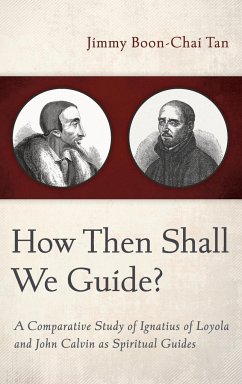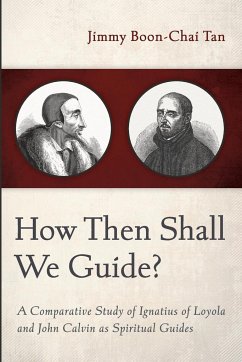
How Then Shall We Guide?
Versandkostenfrei!
Versandfertig in 1-2 Wochen
39,99 €
inkl. MwSt.
Weitere Ausgaben:

PAYBACK Punkte
20 °P sammeln!
There has been a marked increase of interest in the art of spiritual direction in recent decades. Yet in many circles, especially in ecumenical and interfaith contexts, it is unclear what grounds the practice of this ancient art. As a tradition's practice of spiritual direction expresses its particular theology, which, in turn, is shaped by its unique history, this work explains that ecumenical spiritual direction must make and retain the tri-perspective of history, theology, and method that faithfully reflects each tradition's distinctives as requisite for true ecumenical enrichment. The impo...
There has been a marked increase of interest in the art of spiritual direction in recent decades. Yet in many circles, especially in ecumenical and interfaith contexts, it is unclear what grounds the practice of this ancient art. As a tradition's practice of spiritual direction expresses its particular theology, which, in turn, is shaped by its unique history, this work explains that ecumenical spiritual direction must make and retain the tri-perspective of history, theology, and method that faithfully reflects each tradition's distinctives as requisite for true ecumenical enrichment. The importance of this trinocular vision is brought into sharp focus through a comparative study of Ignatius of Loyola and John Calvin, where points of continuity and discontinuity between the Ignatian and Reformed traditions underscore the importance of this work's thesis.














